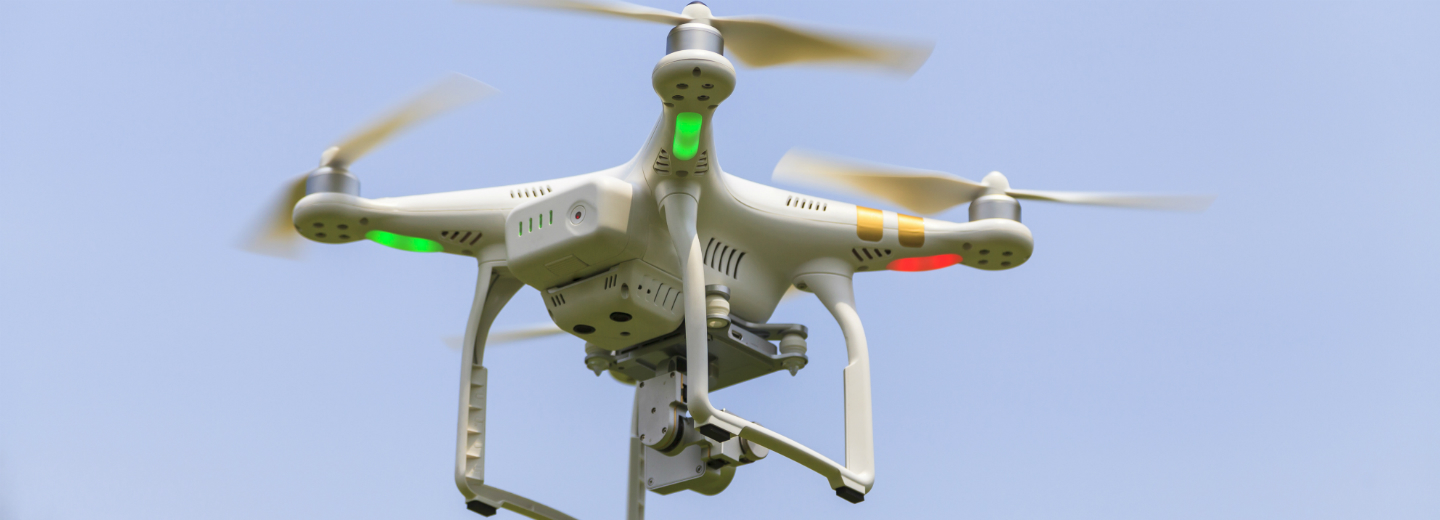
NAT researchers receive strategic funds for engaging with society
The first grants have just been distributed to sub-projects under SDU's three strategic research focus areas on drones, welfare innovation and open data, Researchers from Science are involved in five out of a total of 14 projects and will consequently share in the DKK 10 million awarded to each area in the coming period.
The five projects Science is a part of are: "The Open Biogas Platform", "Open Data Framework", "Intelligent Traffic Systems", "Effective investigation and response to invasive species using drones" and "Drone technology within nature, environment and climate management".
Associate Professor Mogens Flindt and Assistant Professor Sara Egemose from the Department of Biology are responsible for the latter project on drone technology in nature, environment and climate, and the project will receive FKK 1 million from the strategic research focus area on drones. Mogens Flindt says that the funding will be crucial for the group's research:
– With this money we can buy more equipment, such as drones and software. We can also now employ a younger researcher, Niels Svane, to carry out the many drone missions and subsequent image analyses we need for the project. The extra funding means that we can go a step further with the research and therefore contribute to an increased collaboration with the surrounding society. The project is based on our existing regional nature, environment and climate network, and we are very much looking forward to being able to engage the network in the development of new academic topics.
The sub-project's aim is to develop techniques and methods so that the next generation of drones can take water samples and use special multispectral filters and microprobes. The new upgrades can then be shared with the region's nature, environment and climate authorities and consultant companies, and will therefore strengthen Region Southern Denmark in the area of environment and climate analysis.
– The work with drones gives undreamed-of possibilities for collecting things like image data of a nature area. Previously, point measurements were frequently used to assess a nature area's condition, but with the new technology we can carry out measurements of much larger areas - and furthermore with less manpower. A drone can fly for 30 minutes before it needs a battery change, and it is equipped with cameras that can take thousands of pictures at very high resolution. We can then analyse these pictures afterwards on the basis of shape and spectral analysis, i.e. colour hues in the images. It provides incredibly large amounts of data - even from areas we previously had difficulty in getting to, explains Mogens Flindt.
In order to become a strategic research focus area, the University requires the project to have 1:1 funding from faculty and department, and the researchers must also demonstrate that during the project they can raise external funding, for instance from Innovation Fund Denmark. Mogens Flindt is aware that being a SDU strategic research focus area is a great responsibility, and he adds:
– In the project, we take our role as a strategic research focus area very seriously. As a university we can do much more to engage with the surrounding society, and we want to help support this. We have already planned from which foundations we will seek funding for the project, and we hope that our status as a SDU strategic research focus area will be a good starting point for success with our applications. To be able to have the chance of reaching our target with some of our exciting research projects is just an added bonus.
Head of Department Marianne Holmer from the Department of Biology is on the RI Council (Research and Innovation), and is therefore responsible for the strategic research focus areas and for distributing funding to the sub-projects:
– The strategic research focus areas are a way of promoting the current interdisciplinary projects in drones, welfare innovation and open data, so that we achieve more collaborations with companies and other public institutions. I expect the projects each in their own way to have a great effect on SDU's engagement with society, and that they can contribute to growth at SDU as well as in the surrounding society.
She continues by talking about the application process:
– In the Assessment Committee, we are particularly interested in whether the project is built on a strong interdisciplinary collaboration, as our aim is for the strategic research focus areas to include as many of the faculties as possible so they will be representative of the whole university. The strategic research focus areas are also based on SDU's inner strengths, whether they are based on the presence of individual strong research environments, study programmes and/or a particularly strong interdisciplinary collaboration.
The deadline for the next round of applications to the strategic research focus areas is 8 May 2017.
Photo: Colourbox